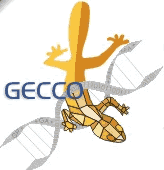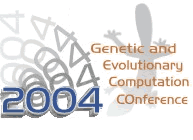

June 26 - 30, 2004
Saturday to Wednesday
Seattle, Washington, USA
Session: |
LBP - Late Breaking Papers |
Title: |
Navigation Using Inverting Genetic Algorithms: Initial Conditions and Node-Node Transitions |
Authors: |
Steven J. Simske |
Abstract: |
Navigation path optimization derives its cost function from the total cost of travel. These costs can accrue from distance, traffic patterns, preferred order of node sequencing, maximum preferred distance between nodes, and other pragmatic considerations (node-node costs). For a traveling salesman problem (TSP), these costs are usually distances. This paper considers the effects of the initial states in the "genome" - focusing on the use of rule-based and clustering techniques for initial conditions. It also considers the effects of weighting the node-node transition costs on algorithm convergence and final path cost. The best tested combination of initial states and rules for recombination involves weighting each by the distances between nodes. In addition to the mean of the residual error m, the metric designated algorithmic efficacy (AE) is introduced as a useful comparative metric for navigational optimization algorithms. Four novel and six published TSP problems are investigated: m is shown to improve in every case, while AE has a wide range of results. |
HomeProgramSearchAuthor Index
SponsorsCommitteeContact Us
